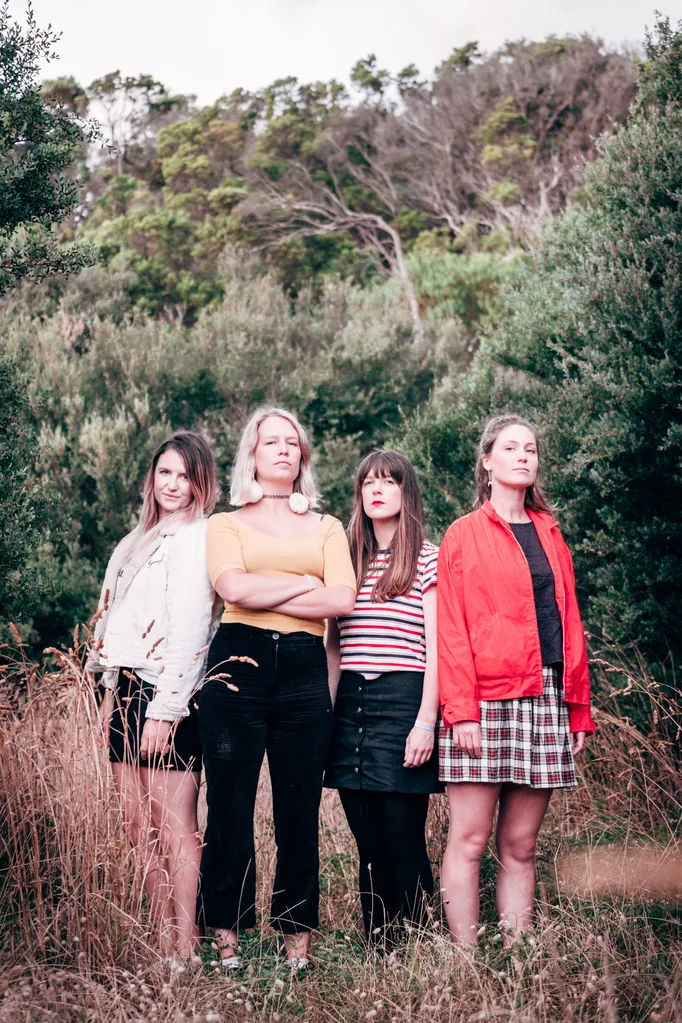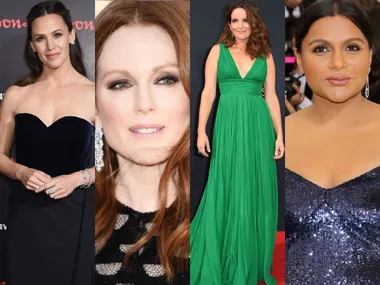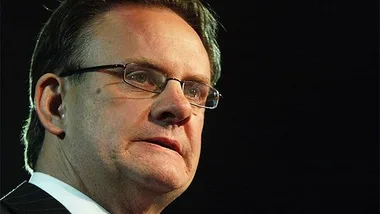Lazertits formed as a bit of a joke, a fact that may not be all that surprising given their tongue-in-cheek name. However, using music to disseminate their funny feminist messages meant they were immediately embraced by Melbourne’s pop-punk scene.
Their lyrics easily resonate with female audiences because they’re articulating the frustrating subtle sexism we experience every. single. day. Their song “Boss Bitch” centres around the word ‘bossy’—an adjective reserved almost exclusively for ambitious women.
He said: Miss I need the doctor, where is he?
She said: you’re looking at him; the doctor is me!
He said: I’m sorry Miss, please pardon my mistake
She said: it’s 20-16 take back that double take!
Cos she’s not bossy, she’s your f-ing Boss
On top of their fiercely feminist lyrics, the four band members balance performing with their impressive careers.
Their lead singer, Amy Pettifer, currently works in Indigenous policy while completing a Master of International and Urban Environmental Management. Drummer Emily Goodman is a primary school teacher, bassist and vocalist Rose Watson works in event management and guitarist Lexi Love-Dack is a screenwriter. Colour us impressed.
We caught up with Lexi to discuss their regrets, sexism, and what’s so great about her bandmates. Spoiler: it involves a cake with Lazertits spelt out with Smarties.
The music industry is notoriously tough to break into – Do you have any advice for young women trying to make it?
Just give it a crack. Honestly, half of us couldn’t even play our instruments when we started. I had a brief stint with the guitar in year seven, but I really learnt guitar as we went.
In music, you think everyone has an innate ability. You think they’re all so amazing and there’s no way you could ever do that, but it’s just because you’re not exposed to it.
There’s artists who I’ve admired my whole life and I thought I’d never be as talented as them and now I’m like, ‘Oh, you’re all playing open chords’.
So, definitely just give it a go. Don’t be scared, you’ll meet like-minded people and create art and you’ll have the best time.
Lazertits has been together for a relatively short time, since late 2014, but you’ve gone from strength to strength, what are you proudest of?
Oh wow, there’s been so many. One was definitely seeing one of our music videos not only on rage, as the video of the week! Seeing the little rage letters in the corner of our film clip was so, so crazy.
Playing live on 3RRR [a community radio station in Melbourne] was amazing too, and on International Women’s Day—wow must be two years ago now—Amy and I flew up to Triple J and hosted a show playing female, trans and gender inclusive bands. I could go forever, honestly.
What about regrets?
If you could do it all again, is there anything you would do differently?
In the beginning we got so swept up by people giving us stuff we’d say yes to everything. We’d book an opening and then they’d say, “We can only give you $100”, so we’d be kind of hesitant and they’d say, “Oh, but it’ll be great exposure and you just need to get your names out there, blah blah blah”.
So if I could go back, I’d be more careful about who we aligned ourselves with and I’d only play shows that made me feel worthy.
Australian music festivals are often accused of having a gender imbalance problem. There are noticeably less female bands on the ticket, and the ones that do have girl members rarely get to play on the main stage or headline. Bookers say it’s because it’s “challenging” to find groups with women good enough to play, has that been your experience?
People will always say “it should be about the music not gender” but that’s just ridiculous. There’s actually a hashtag at the moment called #BeBetter that’s pushing for more balance in the music scene.
It’s not hard at all to find bands with at least one female. This weekend, we’re playing at Bush Festival in Gippsland and 80 per cent of the bands have women in them and 50 per cent are exclusively women. There are heaps of bookers as well who are really focussed on finding female-led bands for their events.

Photographer: Christopher Cohen
One of my guy friends is in a band and recently he played a gig that was only male bands and he actually felt really gross about it. He was trying to explain himself to us and we were like, “It’s okay, it’s not like it’s make or break — I’ll still listen to your band”. But yeah, it’s just important we’re pushing for inclusion which is something we really care about as well. It’s really important to us to be inclusive, focusing on intersectional feminism and being allies for diversity.
Your songs and lyrics centre on overt feminism, do you think your generation is more accepting of feminism than previous generations or has it gotten a bad reputation?
Feminism has definitely become a bit of a dirty word, which I think is part of the reason our lyrics are all about female badassery. I mean you don’t have to brand yourself as a feminist I guess, but anybody who thinks we don’t need it is deluded.
It’s actually my grandma’s birthday soon so I’ve been collecting photos for her party. She used to be in the Communist Party and did heaps of marches and I was just struck by the fact she was fighting for the same stuff we’re fighting for now. She was protesting with signs demanding to legalise abortion and gay marriage, and they are rights we’re still fighting for today, so yeah we definitely still have a need for feminism.

You mentioned some women might be reluctant to brand themselves as feminists and that might be because they don’t experience really overt, smack-you-in-the-face sexism, but have you experienced any microaggressions in the music industry that were purely because you’re a woman?
Definitely! Actually, there was one time at a gig that we just couldn’t stop laughing by the end of it — it was honestly non-stop.
We arrived at Cherry Bar in Melbourne, which is like down this little hidden lane, and this photographer pushed past us and to security he said, “I’m the photographer, I’m shooting the gig tonight. I don’t know who these girls are.” We were like, “We’re the musicians you’re shooting you idiot, we’re holding instruments…” Then people kept asking us if our boyfriends were playing, if we were waiting to see a guy, etc.
Then at the end, one of the sound guys says, “Youse were actually alright” in disbelief then asked if we’d been playing covers. We just ended up laughing because it was so surreal.
And we’ll always get unwarranted advice from males, who’ll say things like, “You know, you can play those notes as chords” and it’s like, “Yeah, mate I know”.
Have you had anyone in particular be a really great champion during your career?
So, so many. Amanda Vitartas from Hysterical Records helped us so much when we were starting out. She was just so supportive and she gave us everything we needed for free which was incredible. Amy’s parents as well — every time we rehearsed at her house, Amy’s mum would bake us a cake and write Lazertits in Smarties on the top!
The whole female-led punk scene in Melbourne is so amazing as well. We were wholly embraced by the other bands and they put us on their bills right from the beginning and everyone is excited by each other’s success.
It’s just so different from the guys in the same space. It’s so competitive — my ex-boyfriend would always complain about other bands’ success and they didn’t really support each other at all. It’s crazy to think the parallel scene is just the polar opposite.
Cover photo cred: Doug Bennett.



